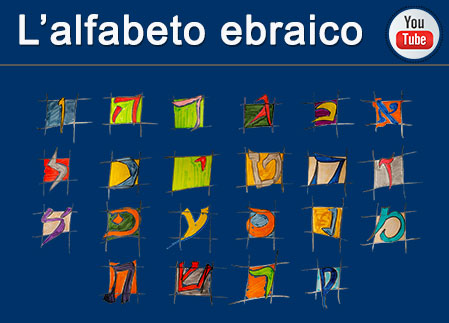Division of Ecumenical and Interreligious Affairs - Archdiocese of Detroit
Stati Uniti d'America 1979
The Division of Ecumenical and Interreligious Affairs which is part of the Department of Worship of the Archdiocese of Detroit published Guidelines on Ecumenism with the following appendix:CATHOLIC-JEWISH RELATIONS
1. Attitudes Inconsistent with the Spirit of Christ
a) Cliches and stereotypes derived from past centuries of hostility must be eliminated. Anti-Judaism is a heritage from the ancient world, but it has been increased in Christian times by pseudo-theological arguments. Depicting Jews as "usurers," "conspirators" or even "deicides" is, sadly, still current today. Such charges, whether stemming from hate-groups or found imbedded in Catholic teaching materials, should be denounced.
b) The repeated teaching of the Church has reminded us that to blame the Jewish people for the passion and death of Jesus is a theological and historical error (e.g., the Catechism of the Council of Trent). Although a few Romans and some Roman appointed Jewish "leaders" historically participated in the events surrounding Jesus' death, the Church holds that "Christ underwent his passion and death because of the sins of all."
c) The New Testament does not state that the Jewish people have been deprived of their election. The Scriptures urge us to recognize God's eternal faithfulness to the Covenant He established with the Hebrew people on Sinai (Gen. 12, Ex 21). Therefore, from the Christian viewpoint (cf., Rm 11:1-2), Judaism is to be seen, not "as a relic of a venerable and closed past, but as a reality living on through time." (Statement of French Bishops, Nov. 1973).
d) It is false to contrast Judaism as a religion of fear with Christianity as a religion of love. The fundamental article of Jewish belief, the Shema Israel, states, "Thou shalt love the Lord thy God." (Dt. 6:4ff). Equally fundamental is the command to love the neighbor (Lv. 19:18). It is to these same passagesthat Jesus appeals in his own summation of the essence of the Torah (Mt. 22:34-40).
e) It must be affirmed that contrary to well established reactions, the doctrine of the Pharisees is not opposed to Christianity. The Pharisees strove to make the Law a principle of life for each Jew by interpreting its prescriptions so that they could be adapted to the different circumstances of daily living. Contemporary research has clearly shown that fundamental to the Pharasaic approach was the principle of Kavanah (inner meaning, intention, spirit of the Law), a principle fundamental to the writings of the Talmud as well.
When Jesus denounced the attitude and formalism of the teaching of certain Pharisees, he was not questioning this awareness. Indeed, the Talmud itself, much in the manner of Jesus, makes some charges of "Hypocrisy" and "Legalistic" against certain types of over-zealous Pharisees. The very closeness between the Pharisees and the first Christians may be one of the main sources of the friction between the two movements.
2. Right Understandings of Judaism
Christians must strive to acquire a better knowledge of the basic components of the religious tradition of Judaism; they must strive to learn by what essential traits the Jews define themselves in the light of their own religious experience. (Vatican Commission for Religious Relations with the Jews, Jan. 3, 1975).
a) A real Christian catechesis should affirm the value of the whole Bible. The first Covenant has not been rendered void by the New. The first Covenant is, in fact, the root, the source, the foundation and a continuing promise of the New. While for us the Old Testament can be fully understood only in the light of the New, this fact in itself presupposes that it should be welcomed and recognized in its own right (see Tim. 3:16). Jesus, after all, was as man a Jew and fulfilled His ministry within the people of the Covenant by His obedience to the Torah and by His prayer. The "Our Father" remains today a particularly apt expression of both Jewish and Christian longings for the final coming of the Kingdom of God, with each component part having clear Rabbinic parallels.
b) Acknowledgement should be made by Christians of the particular and permanent vocation of the Jewish people as a "community and Covenant with God." An essential element of synagogue prayer, for example, is called in Jewish tradition "the sanctification of the Name." The idea of sanctifying the name of God through public worship and ethical living is a biblical concept which Christians should deeply honor, since it is a basic element of the Lord's Prayer, viz., "Hallowed be Thy Name." Through it the Jewish people, invested with a sacerdotal mission (Ex. 19:6), offer all human creation to God and give Him glory. This vocation makes the life and the prayer of the Jewish people a blessing for all the nations of the earth (Gen. 12).
c) Jewish laws should be seen not as mere constraining practices but as gestures which remind those who observe them of the sovereignty of God. Faithful Jews receive as gifts from God the Sabbath and the rites destined to sanctify human acts. They transcend the literal prescriptions of these rites and find in them light and joy on the road of life. (Ps. 119).
d) In meetings between Christians and Jews, the right of each to give full witness to one's faith must be recognized. Christians need not apologize for or seek to cover over differences in the way each approaches the one Father for all humankind. The mystery of God's Divine Will in electing first the Jews and then the Church as bearers of His Will, while revealed in essence, has not yet been resolved in all its details. Humility and openness are signs of dialogue.
e) The dispersion of the Jewish people and the present ingathering into the Land of Israel should be understood in the light of Jewish history and Jewish perspectives.
f) It is difficult to make a clear theological judgment on the return of the Jewish people to its ancient land. Scripture witnesses most strongly to the Promise of this Land to this People (Gen. 12:7, 26:3-4, Is. 43:5-7, Jer. 16:15, Zeph 3:20 et al.). Therefore, Christians as well as Jews are faced with the question: Will the ingathering of the Jews effected under the constraint of persecution and the interplay of vast forces be one of the channels of God's Justice for the Jewish people, and at the same time for the Arab populations of the area, and indeed, for all the peoples of the earth, or will it not? Together
Christians, Jews and Moslems must face this great challenge as together they are the "People of the Book."
Catholics should be sensitive to the deeply held feelings which American Jews hold for the State of Israel. In a statement put forth by the National Conference of Catholic Bishops promulgated on November 13, 1973, the Bishops state clearly the need for "recognition of the right of Israel to exist as a sovereign state with secure boundaries" as well as "recognition of the rights of the Palestinian Arabs, especially the refugees."
g) Catholics should be well grounded in the facts and implications of the Holocaust, that is, the Nazi attempt at extermination of European Jewry. This terrible event, unparalleled in human history, has had a profound impact on Jews throughout the world. It must never be forgotten that these events took place in presumably "Christian" Europe. The implications of the Holocaust for Jewish/Christian relations must be honestly faced today.
3. Practical Guidelines
In order to implement the above understandings and following the Guidelines promulgated on January 3, 1975 by the Vatican Commission for Religious Relations with the Jews, the following steps are recommended:
a) Joint Prayer and Social Action.
Common meetings in the presence of God in prayer and silent meditation, in mutual study and celebration of our common traditions and differences should be established on a regular basis, especially on the parish level. Action for justice and peace, seeking to fulfill both Jewish and Catholic needs as well as the needs of the larger community, is encouraged on all levels.
b) Reconciliation.
As Catholics we need to discover to what extent the responsibility for past and present misunderstandings and injustices is our own, to admit that responsibility in a spirit of humility and openness of heart, and to deduce practical conclusions for the future.
c) Liturgy.
When commenting on biblical texts, emphasis should be laid on the continuity of our Faith with that of the Jewish Covenant without minimizing either those elements of Christianity which are original or those of the Jewish tradition which are seen as of permanent value to the Jewish people. Care should be taken to see that homilies based on liturgical readings do not distort their meaning, especially when it is a question of passages which seem to show the Jewish people as a whole, or major groups such as the Pharisees, in an unfavorable light. The formula, "the Jews," for example, as used in St. John is a theological rather than an historical category. The full meaning and context of such phrases must be carefully explained, where necessary, in homilies, introduction to biblical readings, Prayers of the Faithful, and commentaries printed in missals. It may be advisable to select a member or members of the parish liturgical and catechetical teams to assume special responsibility for the carefulness of expression and historical accuracy which should characterize all liturgical and paraliturgical events.
d) Education.
Information and clarification concerning Judaism is important to all levels of Christian instruction. The effective use of the sources of imformation available on parish and diocesan levels, such as catechetical instructions, textbooks, and the mass media presupposes the thorough formation of all those involved, whether in schools, religious education programs, seminaries or institutions of higher learning.
102 visualizzazioni.
Inserito 01/01/1970
Relazioni Ebraico-Cristiane
Ultime novità nel sito
- 19/04/2020: Articolo - L’enigma della Maddalena
- 23/02/2020: Articolo - Il locus amoenus nelle catacombe ebraiche e cristiane di Roma
- 16/02/2020: Articolo - Il profetismo nel Vicino Oriente antico
- 13/02/2020: Articolo - I Profeti della Cappella Sistina
- 09/02/2020: Articolo - Gerusalemme e la Terra Santa di Israele


